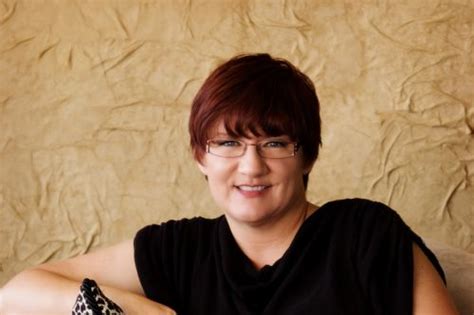A Quote by David Wong
The things we call cultures are dynamic, internally diverse, and their interpretation is internally contested among its members. Cultures are like ongoing conversations with many voices, often telling stories about who "we" are.
Related Quotes
Both sameness and difference are issues for us. A sign of cultural homogenization is that languages are disappearing at an alarming rate. I am heartened by signs that some peoples are fighting back, e.g., the revitalization of the language of the Wampanoag tribe in Massachusetts. But if we reject essentialism about culture, we will be cautious about overgeneralizing about what homogenization is and to what degree it exists. If we think of cultures as dynamic, internally diverse and contested, we will be aware that what looks like homogenization may be deeper down this more complicated thing.
When we come back to fantasy, I think we're actually coming back to the real bedrock of storytelling. Our national or international genre really is fantasy, if you think about the worldwide myths and legends and stories that we all know, whether we're talking about Little Red Riding Hood or the Arabian Nights or Noah's Ark or Hercules. These are stories that cross many cultures in much the same way that dragons cross many cultures.
If we are true small 'l' liberals, it's our job to seek out feminist Muslims, ex-Muslims, liberal Muslims, dissenting voices within Muslim communities, gay Muslims - we should promote those voices and in doing so, we demonstrate Islam is not a monolith, Muslims are not homogenous, and that Muslims are truly internally diverse.
We have to stop thinking about diversity and start thinking about inclusion. That's what you can take from August Wilson. That there are whole cultures out there living experiences exactly like yours, and their stories can be just as dynamic, sold in the foreign market, put as many butts in the seats as any Caucasian movie out there.
For girls and women, storytelling has a double and triple importance. Because the stories of our lives have been marginalized and ignored by history, and often dismissed and treated as 'gossip' within our own cultures and families, female human beings are more likely to be discouraged from telling our stories and from listening to each other with seriousness.
It's not as though there aren't many, many art works and many other cultures, but there was something special about the civic nature of the Greek theater. All the citizens stopped working. They came into these theaters. It wasn't like a Broadway theater where you sit in the dark and you expect to be passively entertained. You're in this theater, amphitheater, in bright sunlight looking at your fellow citizens, recognizing their faces, and thinking with them about the future of your city. I think very few cultures have had a theatrical tradition that is quite so civic.





































